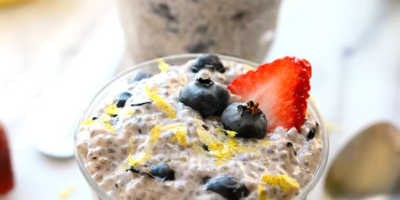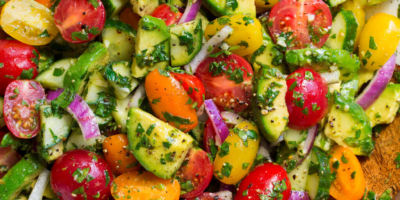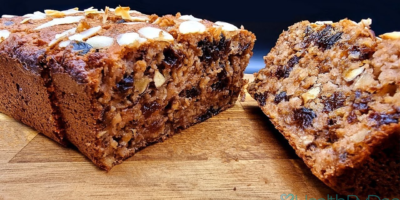Postpartum foods are essential for new mothers as they provide the necessary nutrition to support recovery and breastfeeding. During this critical period, it’s vital to focus on meals that enhance both energy levels and milk production. Incorporating foods for new mothers, such as protein-rich options and fiber-packed fruits and vegetables, can significantly improve overall health and well-being. This article will explore various postpartum meal ideas, including delicious milk production recipes crafted specifically to nourish both mother and baby. By prioritizing nutrition during postpartum, new mothers can ensure they have the strength and vitality needed to care for their little ones.
Exploring nutritional options for new mothers, often termed as postpartum nourishment, is crucial for enhancing recovery and supporting breastfeeding. These meal choices not only aid in healing but also play a significant role in milk supply. New mothers should consider various breastfeeding diet strategies that emphasize balanced meals filled with vitamins and minerals. The focus on wholesome postpartum recipes can transform daily eating into an opportunity for wellness. Through a thoughtful selection of postpartum foods, mothers can enjoy a diverse range of flavors while ensuring their health and that of their newborn.
Postpartum Foods
Postpartum foods are specifically selected meals that cater to the nutritional needs of new mothers. During the postpartum period, a woman’s body requires adequate nourishment to heal and recover from childbirth while also supporting breastfeeding. Foods that are rich in protein, vitamins, and minerals are essential as they not only provide energy but also aid in milk production. Incorporating nutrient-dense options such as whole grains, fruits, and vegetables is vital to ensure comprehensive nutritional support.
Additionally, hydration plays a crucial role in a postpartum diet. Drinking plenty of water helps maintain milk production, and new mothers should prioritize fluid intake throughout the day. Furthermore, including foods high in fiber is important to aid digestion and prevent constipation, which is common after childbirth. In essence, postpartum foods should be a balanced mix that enhances overall well-being and supports breastfeeding.
Essential Nutrition During the Postpartum Period
Nutrition during the postpartum period is critical for healing and sustaining energy levels. It is essential for new mothers to consume a variety of foods that fulfill their increased caloric and nutritional needs. Foods rich in iron, such as leafy greens and lean meats, help replenish nutrients lost during delivery, while calcium-rich foods like dairy products support bone health. Emphasizing protein sources, including fish, legumes, and eggs, can significantly enhance milk production, making these foods vital for nursing mothers.
Moreover, a well-rounded postpartum diet should also include healthy fats from sources like avocados and nuts, which are important for both the mother’s energy and the baby’s brain development. Nutritionists recommend that postpartum women focus on whole, minimally processed foods to maximize health benefits. Consulting with a nutrition expert can provide tailored advice to meet individual needs, ensuring that mothers can thrive while caring for their newborns.
Foods That Support New Mothers
What a new mother eats has a profound impact on her energy levels and overall health during the postpartum period. Foods that are known to be beneficial include oatmeal, which is not only a great source of fiber but also helps in boosting milk supply. Additionally, fruits like bananas and berries provide essential vitamins and antioxidants that promote healing and recovery. Incorporating these foods into daily meals can make a significant difference in a new mother’s experience.
Furthermore, it’s crucial to include hydration in the discussion of postpartum foods. Herbal teas, soups, and broths can be both nourishing and hydrating, supporting milk production. New mothers should also focus on meal planning to ensure they have ready-to-eat options that are wholesome and beneficial. Preparing meals in advance can ease the transition into motherhood, allowing new mothers to concentrate on their babies while still receiving the nutrition they need.
Postpartum Foods to Avoid for Healthier Milk Production
While many foods are beneficial for postpartum recovery, there are certain items that new mothers should avoid to promote better milk production and ensure their baby’s well-being. Caffeine, found in coffee and tea, can lead to irritability in infants, so it is wise to limit intake during breastfeeding. Similarly, alcohol consumption can interfere with milk supply and affect a baby’s development, making it essential to avoid it during this critical period.
Moreover, highly processed foods and those rich in unhealthy fats can negatively impact overall health. Foods that may cause gas for babies, such as beans and certain cruciferous vegetables, should also be approached with caution. New mothers should observe how different foods affect their babies and make adjustments accordingly. Maintaining a clean, wholesome diet will not only benefit the mother but also contribute to the health of her newborn.
Non-Gas-Producing Foods for Nursing Mothers
Choosing non-gas-producing foods is essential for new mothers to ensure their babies remain comfortable and free from digestive issues. Foods that are easy to digest, such as bananas, zucchini, and carrots, should be staples in a nursing mother’s diet. These options provide necessary nutrients without the discomfort that can arise from gas-producing items. Incorporating these foods into meals can help promote a peaceful eating experience for both mother and baby.
In addition to ease of digestion, non-gas-producing foods can also be nutritious and beneficial for milk production. Foods like oatmeal, rice, and lean meats provide energy and protein, which are vital during the postpartum period. Creating a meal plan that emphasizes these gentle foods can alleviate concerns about gas while ensuring that mothers are nourished adequately to support their breastfeeding journey.
Delicious Postpartum Recipes to Boost Nutrition
Postpartum recipes should be designed not only for taste but also for nutritional value, helping to boost recovery and milk production. A milk-boosting postpartum soup, for instance, can be an excellent option, combining ingredients like lentils and vegetables to provide protein and fiber. These soups are typically light and easy to digest, making them an ideal choice for new mothers who may be experiencing fluctuating appetites.
Another delicious option is a postpartum sherbet that includes energizing ingredients like honey and lemon. This refreshing drink can help replenish fluids and provide the necessary sugar for energy. Creating meals like these can make eating enjoyable and fulfilling during the busy postpartum period, ensuring new mothers get the nutrition they need to thrive while caring for their little ones.
Hydrating Foods and Beverages for New Mothers
Hydration is a key component of postpartum nutrition, particularly for breastfeeding mothers. Consuming water-rich foods like cucumbers, oranges, and soups can help ensure adequate fluid intake. Staying hydrated is essential not only for the mother’s well-being but also for maintaining milk production. Incorporating these hydrating foods into daily meals can help support breastfeeding efforts.
Additionally, herbal teas and broths can provide both hydration and additional nutrients. Herbal teas such as fenugreek and fennel can potentially aid in boosting milk supply, making them great additions to a nursing mother’s diet. By prioritizing hydration through both liquids and water-rich foods, new mothers can enhance their recovery and support their breastfeeding journey more effectively.
Incorporating Healthy Fats for Postpartum Recovery
Healthy fats play a crucial role in a postpartum diet, contributing to energy levels and overall health. Sources like avocados, nuts, and olive oil provide essential fatty acids that are important for brain development in infants, as well as for the mother’s recovery. Including these healthy fats in meals not only supports milk production but also helps in feeling satiated and energized.
Moreover, healthy fats can enhance the absorption of fat-soluble vitamins, which are vital for both mothers and babies. Meal ideas such as avocado toast or salads topped with nuts and seeds can be both nutritious and satisfying. By making healthy fats a regular part of the postpartum diet, mothers can ensure they are meeting their nutritional needs while promoting the health of their newborn.
Consulting a Nutritionist for Personalized Postpartum Diet
Consulting a nutritionist can be incredibly beneficial for new mothers looking to optimize their postpartum nutrition. A professional can provide personalized meal plans that take into account individual dietary needs, preferences, and any potential food allergies. This tailored approach ensures that mothers are not only receiving the essential nutrients they require but also enjoying meals that fit their lifestyle.
Additionally, nutritionists can offer guidance on specific foods that enhance milk production and suggest recipes that align with healthy postpartum eating. They can help navigate the complexities of postpartum nutrition, ensuring that mothers feel empowered and supported during this critical transition. Engaging with a nutrition expert can lead to a more enjoyable and effective postpartum recovery, ultimately benefiting both mother and child.
Frequently Asked Questions
How should nutrition be during the postpartum period?
Nutrition during the postpartum period is crucial for recovery and milk production. New mothers should focus on a balanced diet that includes plenty of water, fiber-rich foods, proteins, vitamins, and minerals. Foods such as lean meats, fish, eggs, dairy, whole grains, and fresh fruits and vegetables are ideal for boosting energy and supporting milk production.
What should a new mother eat to increase milk production?
A new mother should eat a variety of foods that promote milk production. Key items include high-protein foods like chicken, fish, and legumes, as well as dairy products for calcium. Additionally, fiber-rich foods like fruits, vegetables, and whole grains are essential. Hydration is also vital, so drinking plenty of water throughout the day is necessary.
What should a new mother avoid eating while breastfeeding?
New mothers should avoid caffeine, alcohol, and highly processed foods while breastfeeding, as these can negatively affect milk production and the baby’s health. Additionally, it’s important to be cautious with allergenic foods and excessively spicy dishes, as they can impact the baby’s digestion and may alter the taste of breast milk.
What foods do not cause gas in babies?
Foods that typically do not cause gas in babies include easily digestible options such as zucchini, carrots, peas, bananas, and rice. For a nursing mother, incorporating these non-gas-producing foods into her diet can help promote a comfortable digestive experience for her baby.
What are some easy postpartum meal ideas for new mothers?
Easy postpartum meal ideas include milk-boosting postpartum soup made with lentils and vegetables, a refreshing postpartum sherbet with lemon and ginger, and a nutritious milk-boosting postpartum cake featuring whole wheat flour and fruits. These recipes provide essential nutrients to support recovery and increase milk production.
| Key Points | Details |
|---|---|
| Nutrition During Postpartum | Balanced and healthy nutrition helps recovery and supports breastfeeding. Drink plenty of water and consume fiber-rich foods. |
| Recommended Foods for New Mothers | Include protein (meat, fish, eggs), fiber (fruits, vegetables), iron (dark leafy greens), calcium (dairy), and healthy fats (avocados, nuts). |
| Foods to Avoid | Avoid caffeine, alcohol, excessively fatty and processed foods, allergens, and overly spicy foods to ensure baby’s health and milk production. |
| Non-Gas-Producing Foods | Foods like zucchini, bananas, oats, rice, and yogurt are easy to digest and unlikely to cause gas in babies. |
| Postpartum Recipes | 1. Milk-Boosting Postpartum Soup 2. Postpartum Sherbet 3. Milk-Boosting Postpartum Cake – all designed to enhance milk production and provide necessary nutrients. |
Summary
Postpartum foods are vital for new mothers as they aid in recovery and significantly boost milk production. It’s crucial for mothers to focus on a balanced diet rich in proteins, vitamins, and minerals while staying hydrated. By incorporating nutritious meals and avoiding certain foods, new mothers can enhance their health and ensure their baby’s well-being. Emphasizing postpartum foods not only supports breastfeeding but also helps mothers regain strength during this critical period.















Comments